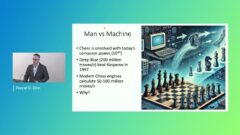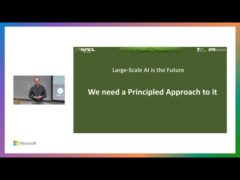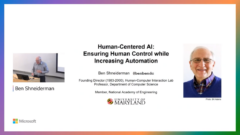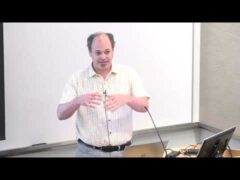Reliable Multithreading through Schedule Memoization
- Junfeng Yang | Columbia University
Multithreaded programs are difficult to write, analyze, test, and debug; a key reason is that different runs of a multithreaded program may show different behaviors, depending on how the threads interleave.
For instance, testing becomes less assuring because the thread schedules tested may not be the ones run in the field. Similarly, debugging becomes quite challenging because developers often have to reproduce the buggy thread schedules for diagnosis. In this talk, I’ll present Peregrine, a compiler and runtime system we have built to simultaneously address these problems by memoizing schedules and reusing them on future inputs if possible. Toward the end of my talk, I’ll briefly talk about how we are leveraging Peregrine to create a precise static analysis framework for multithreaded programs.
발표자 세부 정보
Junfeng Yang’s research centers on making reliable and secure systems.
He earned his PhD at Stanford, where he created eXplode, a general, lightweight system for effectively finding storage system errors.
This work has led to an OSDI best paper award, numerous bug fixes to real systems such as the Linux kernel, and a featured article in Linux Weekly news. In 2008, Junfeng worked at Microsoft Research Silicon Valley, extending eXplode to check production distributed systems. The resultant system is being transferred to Microsoft Windows Azure. He’s now leading the Reliable Computer Systems lab at Columbia University, where his recent work on reliable multithreading won him an NSF CAREER award, and was featured in ACM Tech News.
-
-
Jeff Running
-
-
시리즈: Microsoft Research Talks
-
Decoding the Human Brain – A Neurosurgeon’s Experience
- Dr. Pascal O. Zinn
-
-
-
-
-
-
Challenges in Evolving a Successful Database Product (SQL Server) to a Cloud Service (SQL Azure)
- Hanuma Kodavalla,
- Phil Bernstein
-
Improving text prediction accuracy using neurophysiology
- Sophia Mehdizadeh
-
Tongue-Gesture Recognition in Head-Mounted Displays
- Tan Gemicioglu
-
DIABLo: a Deep Individual-Agnostic Binaural Localizer
- Shoken Kaneko
-
-
-
-
Audio-based Toxic Language Detection
- Midia Yousefi
-
-
From SqueezeNet to SqueezeBERT: Developing Efficient Deep Neural Networks
- Forrest Iandola,
- Sujeeth Bharadwaj
-
Hope Speech and Help Speech: Surfacing Positivity Amidst Hate
- Ashique Khudabukhsh
-
-
-
Towards Mainstream Brain-Computer Interfaces (BCIs)
- Brendan Allison
-
-
-
-
Learning Structured Models for Safe Robot Control
- Subramanian Ramamoorthy
-
























